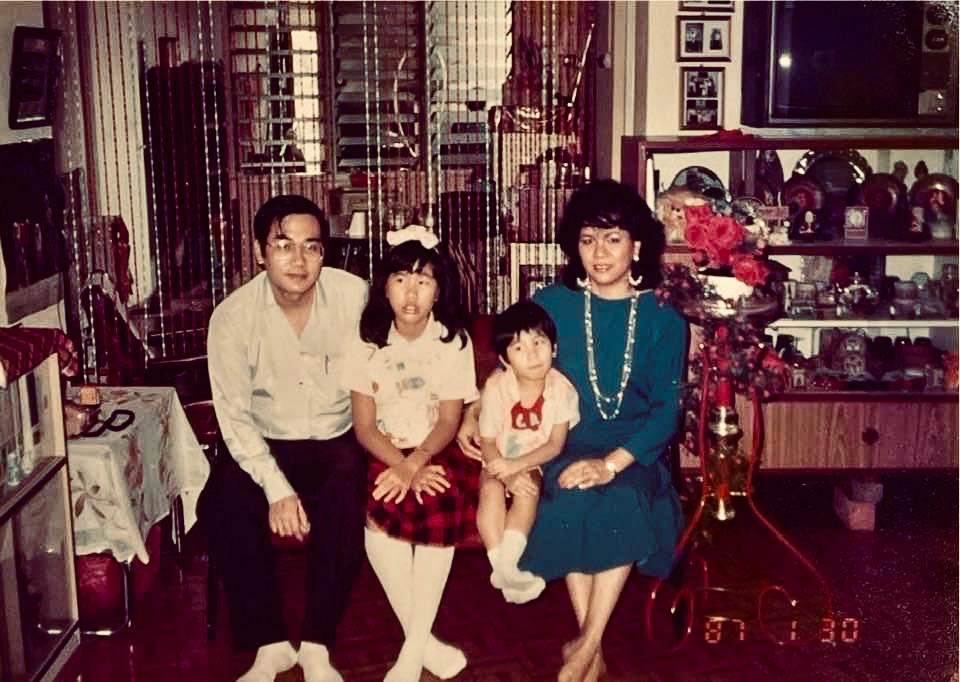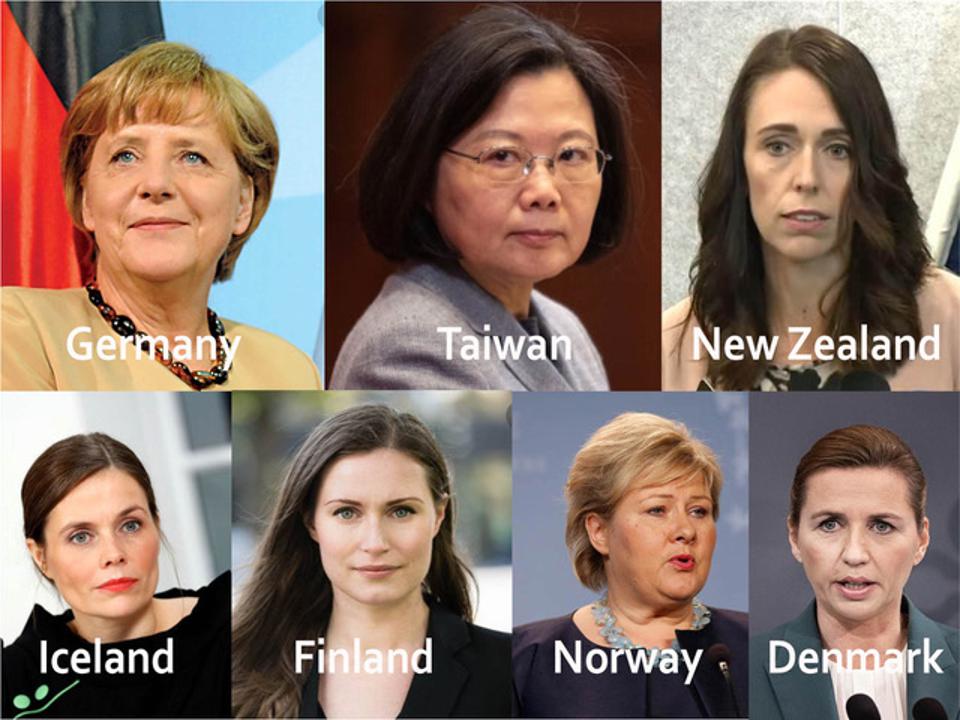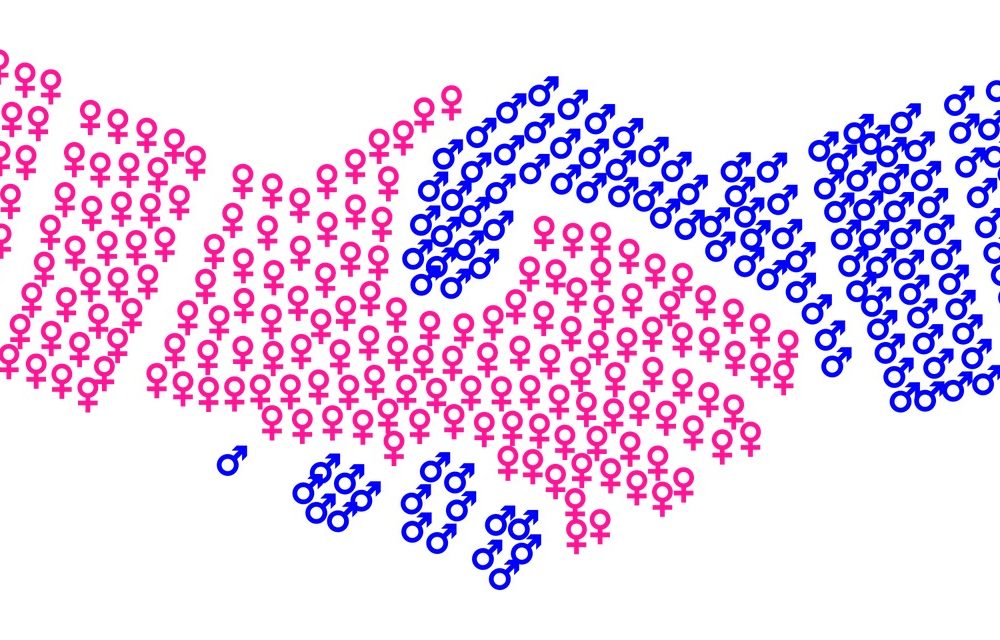08 2月 The Role that Grounds Us

A photo of Yu Min and I taken in 1987 with our two younger children.
“If the love of women is unconditional, the nature of the relationship between men and women must be reciprocal.”
Dr Sim Quan Seng
I make it quite evident how I feel about women’s roles. Perhaps it’s because of my experience with two women in my life, my mother and my wife. They have shown me the true meaning of the complementary role between men and women.
Perceptible Sentiments
My mother showed me the strength of mind that a woman is capable of. She stoically cared for the nine of us brothers and sisters. Until her untimely passing when I was 15, she persevered with my father to ensure the family got whatever we needed, planting vegetables and rearing chickens and pigs to ensure we never wanted for anything.
Yu Min, my wife, continues to show me the power of kindness. Never to judge and never to condemn, Yu Min’s Christian upbringing opened her heart to appreciate the beauty in others. I am reserved and terse at times but Yu Min’s display of love for others has greatly influenced my outlook in life – showing me that there is love in abundance around us.
My sentiment towards women is also perceptible in the CNS group of companies I am Chairman of. Many of the workforce within the CNS group are women. I have been asked if this is ‘intentional’. My answer is, “No”. We interview both men and women; however, we often find that women are more inclined to fit our corporate values represented by the acronym GRIT (Gratefulness, Respect, Integrity and Teachability).
Global Perception
From a broader perspective, a Forbes report captures my standpoint quite aptly. The article, with a tell-all title, What Do Countries with The Best Coronavirus Responses Have in Common? Women Leaders, boldly stated, “Generally, the empathy and care which all of these female leaders have communicated seems to come from an alternate universe than the one we have gotten used to. It’s like their arms are coming out of their videos to hold you close in a heart-felt and loving embrace. Who knew leaders could sound like this? Now we do.”

Image Source: https://www.forbes.com/sites/avivahwittenbergcox/2020/04/13/what-do-countries-with-the-best-coronavirus-reponses-have-in-common-women-leaders/?sh=26286cd13dec
“From Iceland to Taiwan and from Germany to New Zealand, women are stepping up to show the world how to manage a messy patch for our human family,” stated the report, citing Angela Merkel’s “It’s serious” remark as truthful and Tsai Ing-wen’s use of 124 measures to block the spread of Covid-19, ‘decisive.’
The article also applauded Iceland’s Katrín Jakobsdóttir for offering free coronavirus testing to all its citizens. Sanna Marin, Finland’s youngest head of state, used social media influencers to battle the crisis. In an unconventional approach, Norway’s Prime Minister, Erna Solberg, innovatively spoke directly to her country’s children on television, lovingly “explaining to them why it was OK to feel scared.” She was building on Danish Prime Minister, Mette Frederiksen’s message.
Science and Empirical Observations
On the science frontier, Jennifer Graham, professor of biobehavioral health at Penn State University, USA, said, “People think that women have a higher threshold and tolerance, the reasoning being either that women have evolved to be able to cope with childbirth pain, or that they have dealt with so much naturally occurring pain in their lives.”
I am in absolute agreement that women have more on their plates than their male counterparts. Let’s look at it from the standpoint of a typical family, where both husband and wife work. Women take on household chores, do the marketing for home supplies, cook and care for children.
Empirical data also show that women in the United States spend two hours more each day cleaning, cooking, taking care of children and doing other unpaid work than men (Source: Oxfam and the Institute for Women’s Policy Research).
Willing Frontliners
Nurturing professions such as teaching also see more extensive participation from women. Historically, the teaching profession became an acceptable career path for women in the mid-1800s. Women were expected to teach children arithmetic, language, arts, history and life science.
In my previous and present education businesses, more than 85 per cent of the workforce are women; and I can attest that almost all Early Childhood Educators are women.
Florence Nightingale, the foundational philosopher of modern nursing, considered nursing as a suitable job for women because it was an extension of their domestic roles. In healthcare professions, more than 75 per cent of the workforce are made up of women (Source: Global Human Resource), making it imperative also to consider that as frontliners, “women could be uniquely impacted by the coronavirus”, reported CNBC.
Equitable Representation
Yet, for their steadfastness, women are still under-represented in financial fields such as insurance and marketing. In my opinion, ignoring the capabilities of women could mean that we may be missing out on critical sources of talent.
A Harvard Business Review article explained why diverse teams effectively solve difficult problems and reach diverse markets and customer segments. Still, there is much that can be done to level the playing field in leadership roles, as illustrated in a recent report by HolonIQ, which shows a disparity of women in leadership positions.
Mutually Dependable
Religion, too, gives us a profound insight into the complementary role of women. As a Christian, I am familiar with Proverbs 31, “Woman means working hard to become a woman who honours God. Remember that you are worthy of God’s grace. Be truthful and faithful. Love others, be good to others and pray for others. Work hard in everything you do.” It is further emphasised, “A good woman is hard to find and worth far more than diamonds. Her husband trusts her without reserve and never has reason to.”

Image Source: https://guidable.co/culture/gender-roles-of-men-and-women-in-japan/
My take on this is if the love of women is unconditional, the nature of the relationship between men and women must be reciprocal. Men acknowledge the strength of women, and women lovingly embody the roles that they have been so uniquely blessed with the ability to endow.
Conclusion
Women tend to be more emotionally expressive, and I believe that it is this trait that enables them to reach out to the other person’s emotional side. When a connection is made, it builds a trusting bond that is hard to break. We all can learn from one another. If we do, it would only lead to a happier world.
References
Connley, C. (2020, March 18). How women could be uniquely impacted by the coronavirus. Retrieved from CNBC : https://www.cnbc.com/2020/03/18/how-the-coronavirus-could-impact-women-in-health-care.html
Ellingrud, K., & Lodolo, M. (2019, October 17). Gender parity is still a problem in insurance: Here’s what leaders can do. Retrieved from McKinsey & Company: https://www.mckinsey.com/industries/financial-services/our-insights/insurance-blog/gender-parity-is-still-a-problem-in-insurance-heres-what-leaders-can-do
Holon IQ. (2021, March 7). Women CEOs & leaders. The global state of play. Retrieved from https://www.holoniq.com/notes/women-ceos-leaders.-the-global-state-of-play.-2021/
HRH Global Resource Center. (n.d.). Resource spotlight: Gender and health workforce statistics. Retrieved from https://www.hrhresourcecenter.org/gender_stats.html
Rock, D., & Grant, H. (2016, November 4). Why diverse teams are smarter. Retrieved from Harvar Business Review: https://hbr.org/2016/11/why-diverse-teams-are-smarter?referral=00563
Stevenson, A. (2008, November 10). Probing question: Do women have a higher pain threshold than men? Retrieved from Penn State: https://www.psu.edu/news/research/story/probing-question-do-women-have-higher-pain-threshold-men/
Weisholtz, D. (2020, January 22). Women do 2 more hours of housework daily than men, study says. Retrieved from Today: https://www.today.com/news/women-do-2-more-hours-housework-daily-men-study-says-t172272
Wittenberg-Cox, A. (2020, April 13). What do countries with the best coronavirus responses have in common? Women leaders. Retrieved from Forbes: https://www.forbes.com/sites/avivahwittenbergcox/2020/04/13/what-do-countries-with-the-best-coronavirus-reponses-have-in-common-women-leaders/?sh=26286cd13dec


No Comments